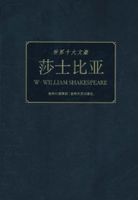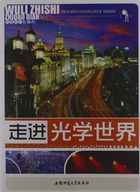As to that Fugitive Slave Law, it should be explained that the grievance has not arisen from the loss of slaves. I have heard it stated that South Carolina, up to the time of the secession, had never lost a slave in this way--that is, by Northern opposition to the Fugitive Slave Law; and that the total number of slaves escaping successfully into the Northern States, and there remaining through the non-operation of this law, did not amount to five in the year.
It has not been a question of property, but of feeling. It has been a political point; and the South has conceived--and probably conceived truly--that this resolution on the part of Northern States to defy the law with reference to slaves, even though in itself it might not be immediately injurious to Southern property, was an insertion of the narrow end of the wedge. It was an action taken against slavery--an action taken by men of the North against their fellow-countrymen in the South. Under such circumstances, the sooner such countrymen should cease to be their fellows the better it would be for them. That, I take it, was the argument of the South, or at any rate that was its feeling.
I have said that the reasons given for secession have been trifling, and among them have so estimated this matter of the Fugitive Slave Law. I mean to assert that the ground actually put forward is trifling--the loss, namely, of slaves to which the South has been subjected. But the true reason pointed at in this--the conviction, namely, that the North would not leave slavery alone, and would not allow it to remain as a settled institution--was by no means trifling. It has been this conviction on the part of the South that the North would not live in amity with slavery--would continue to fight it under this banner or under that, would still condemn it as disgraceful to men and rebuke it as impious before God--which has produced rebellion and civil war, and will ultimately produce that division for which the South is fighting and against which the North is fighting, and which, when accomplished, will give the North new wings, and will leave the South without political greatness or commercial success.
Under such circumstances I cannot think that rebellion on the part of the South was justified by wrongs endured, or made reasonable by the prospect of wrongs to be inflicted. It is disagreeable, that having to live with a wife who is always rebuking one for some special fault; but the outside world will not grant a divorce on that account, especially if the outside world is well aware that the fault so rebuked is of daily occurrence. "If you do not choose to be called a drunkard by your wife," the outside world will say, "it will be well that you should cease to drink." Ah! but that habit of drinking, when once acquired, cannot easily be laid aside. The brain will not work; the organs of the body will not perform their functions; the blood will not run. The drunkard must drink till he dies. All that may be a good ground for divorce, the outside world will say; but the plea should be put in by the sober wife, not by the intemperate husband. But what if the husband takes himself off without any divorce, and takes with him also his wife's property, her earnings, that on which he has lived and his children? It may be a good bargain still for her, the outside world will say; but she, if she be a woman of spirit, will not willingly put up with such wrongs. The South has been the husband drunk with slavery, and the North has been the ill-used wife.
Rebellion, as I have said, is often justifiable but it is, I think, never justifiable on the part of a paid servant of that government against which it is raised. We must, at any rate, feel that this is true of men in high places--as regards those men to whom by reason of their offices it should specially belong to put down rebellion.
Had Washington been the governor of Virginia, had Cromwell been a minister of Charles, had Garibaldi held a marshal's baton under the Emperor of Austria or the King of Naples, those men would have been traitors as well as rebels. Treason and rebellion may be made one under the law, but the mind will always draw the distinction. I, if I rebel against the Crown, am not on that account necessarily a traitor. A betrayal of trust is, I take it, necessary to treason.
I am not aware that Jefferson Davis is a traitor; but that Buchanan was a traitor admits, I think, of no doubt. Under him, and with his connivance, the rebellion was allowed to make its way. Under him, and by his officers, arms and ships and men and money were sent away from those points at which it was known that they would be needed, if it were intended to put down the coming rebellion, and to those points at which it was known that they would be needed, if it were intended to foster the coming rebellion. But Mr. Buchanan had no eager feeling in favor of secession. He was not of that stuff of which are made Davis, and Toombs, and Slidell. But treason was easier to him than loyalty. Remonstrance was made to him, pointing out the misfortunes which his action, or want of action, would bring upon the country. "Not in my time," he answered. "It will not be in my time." So that he might escape unscathed out of the fire, this chief ruler of a nation of thirty millions of men was content to allow treason and rebellion to work their way! I venture to say so much here as showing how impossible it was that Mr. Lincoln's government, on its coming into office, should have given to the South, not what the South had asked, for the South had not asked, but what the South had taken, what the South had tried to filch.
Had the South waited for secession till Mr. Lincoln had been in his chair, I could understand that England should sympathize with her.
For myself I cannot agree to that scuttling of the ship by the captain on the day which was to see the transfer of his command to another officer.















